#ibn saud
Note
You have mentioned your interest in reading about Saudi Arabia and I share your interest, so I want to know if you think the crown prince will actually become king eventually?
Yes, without a doubt. The Crown Prince, Mohammed bin Salman (MBS), is already the de facto ruler of Saudi Arabia and has instituted major economic, cultural, and religious reforms over the past few years that have dramatically changed Saudi Arabia. (Of course, he has also been responsible for some impulsive foreign policy disasters and brutal human rights violations.) With the possible exception of the Emirati leader, Mohammed bin Zayed (MBZ), the Saudi Crown Prince is already the most powerful leader in the Arab world.
King Salman is still alive (at least he was a few minutes ago), so he is officially in charge, but the King is nearly 88 years old and it is believed that he has been in failing health for a while now. It's not unusual for there to be a de factor ruler while the Saudi King is still living, and in every instance that de facto ruler ultimately succeeded the King. King Saud was forced to hand over power to the future King Faisal because Saud was utterly incompetent and unfit to effectively rule the country. King Khalid, who had assumed the throne when Faisal was assassinated in 1975, handed the reins over to future King Fahd because his health was failing. Fahd suffered a massive stroke in the 1990s, and future King Abdullah stepped in as de facto ruler until he was proclaimed King upon Fahd's death. So there's a lot of precedent for the de facto ruler to eventually become King in his own right. MBS has taken about as much control over Saudi Arabia as possible while still respecting the position of his father, but he's undoubtedly the person calling the shots and he's seemingly (and, in some cases, publicly) sidelined any potential threats to his rule once King Salman dies or abdicates.
Unless there is some shocking turn of events -- and it would probably take nothing short of a revolution at this point -- MBS will eventually succeed his father as King. That will make him the first grandson of Ibn Saud, the founder of the modern Saudi state, to become King. Since the death of Ibn Saud in 1953, every one of his successors as King of Saudi Arabia has been one of his roughly 50 sons. And because MBS is still so young (he's only 38 years old right now), he will likely have the opportunity to rule Saudi Arabia and become the most influential leader in the Middle East for decades to come.
#History#Saudi Arabia#Middle East#King of Saudi Arabia#Crown Prince of Saudi Arabia#House of Saud#Mohammed bin Salman#MBS#King Salman#Ibn Saud#Saudi Kings#Saudi Succession
19 notes
·
View notes
Text

"LAWRENCE'S RETURN AWAITED IN ARABIAN CRISIS," Kingston Whig-Standard. May 7, 1934. Page 1.
---
A crisis in Arabian affairs that is endangering interests of British and other foreigners, is expected to bring Col. T. E. Lawrence, one-time "uncrowned ruler of Arabia," out of his obscure role as an enlisted man in British air corps, and send him back to the desert as peacemaker. Ibn Saud, king of Saudi, precipitated crisis by using planes, machine guns and other modern implements of war to overcome Imam of Yemen and capture his territory, including important city of Hodeida, scene from which is shown at top in above layout. Inset is shown heir to Yemen throne, while at extreme right, Lawrence as he is today.
#hodeida#al hudaydah#t. e. lawrence#ibn saud#saudi arabia#saudi–yemeni war#الحرب السعودية اليمنية#interwar period
8 notes
·
View notes
Text
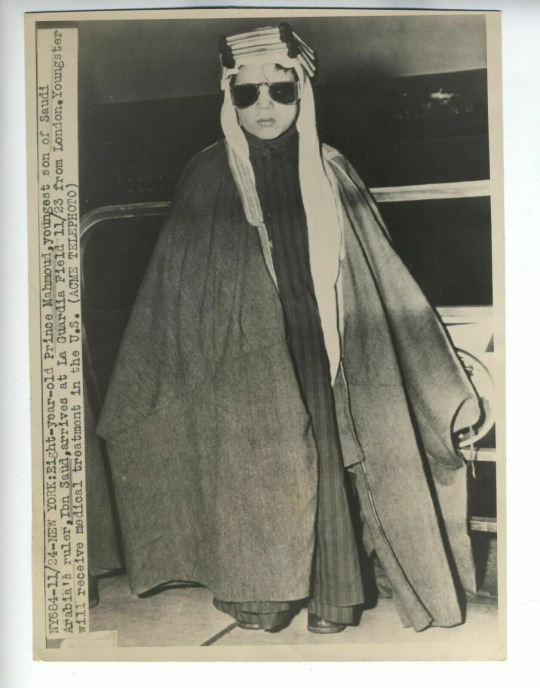
youtube
#second son Prince Saud#heir to the throne#saudi#throne#1933#prince mahmoud#eight years#in new york#many quarrels#with his elder brother#Muhammad bin Abdul Rahman#house saud#ruler#ibn saud#arrival#from london#to receive#medical treatment#good luck#Things fall into place#blancmange#living on the ceilimg#ceiling#up the tree#la guardia#Youtube
3 notes
·
View notes
Note
Question: what does ‘wahabi’ mean and why do you use it?
Wahhabism refers to a movement within Salafism concerned with the purification of Islamic traditions. It was founded by a scholar by the name of Muhammed ibn Abdul Wahhab. Wahhabism is concerned with the idea of Islamic revivalism and restorationism. The idea that absolute monotheism must be cleansed from every impurity and theological assumption about God's Oneness in the sense that nothing can be attributed to God's Uniquess which upon would compromise Monotheism. Due to this belief, Wahhabism is concerned with eliminating innovations and beliefs in sainthood and saint veneration, which is held to be a form of idolatry, strictly ordering the destruction and desecration of Shrines and the likes.
Wahhabism considers any branch of Islam that does not adhere to Sunni Orthodoxy to be a form of heresy, professing that anyone who strays from their belief is an apostate by excommunicating them (=Takfir). This is why they're opposed to Shi'a Muslims, various Sufis and any Sunni Muslim that stray from their religious belief.
Like other Salafi schools, Wahhabists believe that Taqlid (=following a religious school) is discouraged, if not detested, and Islam must be investigated in the traditional and literalist sense rather than following the consensus. This means that any metaphorical and allegorical exegesis is rejected in favour of a literal interpretation of the Qur'an. For example, if God says "He sees the universe with his eyes", then it must be assumed that God have eyes in the most literal sense. Anyone who strays from this tradition falls into disbelief they claim.
Wahhabism have a historical alliance with the House of Saud , who which Wahhabism became the established state religion within the terroritories of al-Saud. Wahhabi clerics used their monopoly over religious authority to construct a puritanical religious culture by suppressing dissent and non-Wahhabi Muslims, even going so far as to ban travel to neighbouring Islamic countries. Madkhalism is a form of Wahhabism that upholds that Muslims must obey the ruler of a land they reside, thereby considering any dissent to be a form of deviancy, hence their strong support for the Saudi regime.
171 notes
·
View notes
Text
This week, as several European governments announced their plans to formally recognize the state of Palestine, the United States continued to press against the current. Earlier this month, the United States stood almost alone in its refusal to grant the Palestinian people an equal seat among the community of nations. The United Nations General Assembly approved its support of Palestinian statehood 143 to 9, with 25 nations abstaining. The thunderous applause that followed the vote marked both a celebration of international support for Palestinians and a protest against Israel and the United States.
Yet that vote was mostly symbolic. Full membership must first be approved by the U.N. Security Council, where the United States holds veto power. Back in 2011, the mere threat of an American veto sufficed to kill Palestine’s application for U.N. membership, but this April the Biden administration was obliged to cast the single vote that blocked Palestinian statehood.
America’s official position is that Palestinian statehood should be achieved through negotiations between Israelis and Palestinians. This stance is particularly ironic considering that the United States was the first government to recognize Israel in 1948, despite President Franklin D. Roosevelt’s earlier assurances to Saudi King Abdul Aziz ibn Saud that the United States would not intervene. Today, the Saudis demand that Israel support the two-state solution as a condition for advancing a regional security treaty they see as a means of countering extremism. But in effect, America has outsourced its veto power to Israel’s extremist government, framing statehood as a gift to be granted to Palestinians at the will of their occupier.
As a Palestinian American and an Israeli, working in partnership, we believe that no one—not Israel and not the United States—should be allowed to veto the Palestinian right to self-determination. To do so undermines not only Palestinian rights, but also Israeli and American interests.
The Palestinian interest
The failures of the Oslo Accords, reached in the mid-1990s, and subsequent decades of international neglect have sidelined the so-called Palestinian problem. The massacres and destruction that erupted with the Hamas attacks on Oct. 7, 2023—further escalated with Israel’s onslaught against Gaza—reminded the world that one of its longest-running conflicts will not magically disappear. Now, some 40,000 lay dead, twice as many are physically injured, and more than a million are displaced and on the brink of starvation. With Gaza in ruins, and the war still raging on, those who survive are left with not much more than deep despair and a desire for vengeance.
Statehood provides Palestinians with political agency that is not rooted only in violence. It offers them a path to self-determination with true political agency and dignity. Statehood also opens the door for a new generation of Palestinian leaders to move forward. In 2012, Palestine became a U.N. nonmember observer state, allowing it to later join the International Criminal Court and demand accountability under international law. Full membership in the world’s most important political body is not a panacea, but it would provide Palestinians with diplomatic tools that they currently lack and that could become crucial once negotiations with Israel finally start. More urgently, full statehood resists Israel’s attempts to paint all of Gaza’s remaining public infrastructure and public life as a terrorism threat. This makes statehood an essential vehicle for reaching a sustainable cease-fire, for ending the war, and for administering the physical and political reconstruction of Gaza. This is quite the opposite of the ridiculous attempts to frame statehood as a “reward for terrorism,” as Israeli hard-liners often depict it. Palestinians deserve a path toward a future that is not soaked in blood and empty promises.
And, frankly, so do Israelis.
The Israeli interest
In the wake of the Oct. 7 attacks, Prime Minister Benjamin Netanyahu and his extremist government have exploited Israelis’ collective trauma and survivors’ guilt. Netanyahu’s efforts to avoid accountability for personal corruption, combined with his administration’s push toward annexation and authoritarianism, have strained a democracy already weakened by more than half a century of military occupation. Despite last year’s widespread protests against the government’s attempts to overhaul the judicial system, most Israelis fail to connect the occupation with the anti-democratic shift, the security failures since Oct. 7, and the rampant racism and social polarization in society. These trends are reinforced by police violence against protesters and the suppression and vilification of speech critical of the war effort, particularly on the part of Palestinian citizens of Israel.
Yet calls for recognizing Palestinian statehood are still being sounded both in the streets and online. As Minister of Finance (and extremist settler) Bezalel Smotrich starkly noted in a recent meeting with settler leaders, the growing recognition of Palestinian sovereignty around the world is making Palestinian statehood a “tangible, developing danger.”
But in truth, the greatest danger to Israel is Netanyahu’s ongoing sabotage of Palestinian political aspirations, a policy that strengthens both Israeli and Palestinian extremists, perpetuates war, and destroys the lives and livelihoods of those it pretends to protect. It may be leading the state founded to prevent a second genocide against the Jewish people to perpetrate one against another people. And it is recklessly isolating a small nation from its most loyal international allies, including U.S. President Joe Biden.
The American interest
Recognizing Palestinian statehood is not just another bargaining chip for pleasing the Saudis. It could indeed restore America’s diplomatic leadership and help recalibrate its global influence, leveraging positions against Russia and Iran, and even countering Chinese designs on Taiwan. The ongoing funding of two wars—one in Gaza and the other in Ukraine—is economically unsustainable and politically detrimental. Indeed, Biden’s current strategy toward Israel is alienating his progressive base and provides fodder for his political opponents. In characteristic doublespeak, Republican presidential candidate Donald Trump has criticized Biden’s handling of the war from multiple angles, encouraging his followers as they chant “Genocide Joe,” and then blasting Biden for postponing weapons shipments to Israel.
A bold step toward supporting Palestinian statehood could decisively shift the narrative. It would finally present the U.S. president as standing on the right side of history, and it would help him secure more political support domestically and internationally.
Some might insist that now is not the right time for intricate statecraft, as children are starving in Gaza. But at this historic moment, a mere cease-fire is simply not enough. We finally have the diplomatic opportunity, the political leverage, and the moral imperative to support transformative change. Biden risks not just his own reelection but the moral standing of the United States on the global stage. If his reelection bid fails, a reinvigorated Trump presidency would wreak havoc on the international order—including the cause of Palestinians.
Toward two states, and a land for all
If it’s difficult to imagine Israelis and Palestinians having shared interests and acting on them at this fraught moment, our organization can serve as an example. Both of us are board members of A Land for All (ALFA), a Palestinian/Israeli movement dedicated to peace, equality, and mutual self-determination for everyone living between the Jordan River and the Mediterranean Sea. We advocate creating a sovereign Palestinian state alongside Israel, with borders based on the 1967 lines. We also believe that many of the long-standing obstacles to a negotiated agreement can be overcome by establishing a two-state confederal union that guarantees freedom of movement and residence for both peoples across our shared homeland.
Achieving this vision will obviously not be easy, but the first step is clear. It is within Biden’s power to propose a new U.N. Security Council resolution recognizing a Palestinian state. If Biden is a true friend of the Israeli and Palestinian people, he must act now. It’s the right thing to do, and it might help save his reelection campaign.
18 notes
·
View notes
Text
Some of the names that had previously been mentioned here in this channel. The least we can do is to atleast mention the ones we know..
Our scholars from Bangladesh who are behind bars, among whom are:
Sheikh Jashim Uddin Rahmani
Sheikh Hārūn Izhar
Sheikh Ali Hassan Osama
Sheikh Mahmud Hasan Gunvi
Sheikh Abu Taha with his two assistants Amir Uddin Foyez and Abdul Muhit
Our Scholars, students of knowledge and preachers who have been imprisoned and tortured by Tawagheet Regimes, among whom are:
Shaykh Nāṣir alFahd
Shaykh Sulaymān Nasir al-Alwan
Shaykh Waleed As-Sinani
Shaykh Khalid Rashid
Shaykh Ali al-Khudayr
Shaykh al-Khalidi
Shaykh Saud al-Obaid al-Qahtani
Shaykh Ahmad al-Asir
Shaykh Faisal
Shaykh Benbrika
Shaykh Abu Baraa- As-Sayf
Shaykh Abu Umar
Abu Hamza al-Misri
Abu Hamza (ATP)
Abu Imran (Belgium)
Abu Ilyas (Holland)
Abu Abdurrahman (Denmark)
Our scholars who had been k***d in the way of Allah after imprisonment:
Shaykh Musa al-Qarni
Shaykh Faris az-Zahrani
Shaykh Hamad al-Humeidi
Shaykh Abdul Aziz al-Tiwayli
Others:
Afiya
Hayla al-Qusayr
Umm A
Umm Abdul Qayoom
Ukht M and her daughters S and R (UK)
Sabir Miah (UK)
Ali Hussain (UK)
Safiyya (UK)
Safiya Yassin (USA)
Our young Deutsch
sis & student of Shaykh AMJ
Muhammad Abu Bakr (Minshawary)
Ali Bhola
Abul wali AbuKhadir Muse (The Smiling Somali)
Iqbal Khan (India)
Abu Syahla
Muhammad
Abu Yousuf
Brother R
Abu I and Abu N
Ukht S & Ukht H from India
Umm Hud
Sister A
Sister B & siblings & their mother
Umm Mariyah
Brothers Jahanzaib, Nabeel, Abdullah Basit
Sister S (Bangladesh)
Our dear brother Muhammad Azharuddin
Brother 'Talib Exposed'
Brother Abu Luqman (Anjem)
Brother Khaled
Abu Fazul
Abu Umar (Pakistan)
Iqbal
Ibn Tsar (Chechen)
Hadi Nabi
Abu Ibrahim
Ari and Alan
Last edited on 25 Sep 23
Shared
اللهم فك قيد اسرانا و اسرى المسلمين
60 notes
·
View notes
Text
Arizona’s Sonoran desert and the Arabian desert [...] are directly linked. [...]
The dairy company Almarai that bought that alfalfa farm in Arizona in 2014 is actually headquartered just outside Riyadh, in a place called Al Kharj. This had been a favorite spot for the first Saudi king Abdulaziz, or Ibn Saud. He tried to set it up as a royal farm in the 1930s and he eventually pulled in Aramco (then the Arabian-American Oil Company, and now Saudi Aramco) to manage the operations. But in the early 1940s, an American geologist Karl S Twitchell (who had spent some of his early years mining in Arizona) convinced the US government to fund his 1942 Agricultural Mission to Saudi Arabia, ultimately aiming to develop the Al Kharj farms and curry favor with King Ibn Saud. This lay the groundwork for another US government-funded mission to send a team of Arizona farmers Al Kharj, with the idea that they could bring their special desert expertise to expand the farm and modernize Saudi agriculture.
The State Department also organized several royal family visits to tour Arizona agriculture -- first in 1943 by princes Faisal and Khalid (both of whom would later become kings of Saudi Arabia) and then in 1947 by Crown Prince Saud al-Saud (who would also become king).
And this second visit to Arizona was pivotal in kicking off Saudi Arabia’s dairy industry in the early 1950s; when Crown Prince Saud became King Saud and took over the Al Kharj farm, he insisted on getting a “Grade A dairy” (as he called it) like what he had seen in Arizona.
Flash forward many decades and a shocking regime of state agricultural subsidies, and it is precisely this early home of Saudi dairy that Almarai and its nearly 100,000 cows are based.
This kind of circularity [...] -- a seemingly modern point of connection actually having much deeper roots. [...]
---
When American settlers and the US military first started to colonize the place that we now know as Arizona after it was acquired in 1848, they really did not know how to deal with the desert environment. But early advocates of US expansionism thought that they could use ideas and approaches from the “Old World” deserts of the Middle East (including farming techniques, plants, and animals, etc.) to conquer the American “New World” deserts. [...] [There was a] wide-ranging political, scientific, military, and cultural system that was needed for American[s] [...] to take over this territory and build US empire domestically. [...] So as US empire started to expand beyond North America, Euro-American settlers and their descendants learned that they could sell this desert expertise abroad, and started to build new colonial networks in the Middle East around the stories of their common arid lands experiences. [...] [It] is not just about domestic empire-building, but is also about US empire-building in the Arabian Peninsula since the mid-1900s. [...]
[T]he “desert” becomes a narrative resource.
In this sense, it is less about the physical characteristics of desert environments and more about how people breathe life into their stories of the desert and how they put these stories to work through a constellation of desires and beliefs about deserts. [...]
[T]hink about Gulf geopolitics beyond mainstream approaches [...], and [...] examine the role of science, expertise, and techno-futures in building and bolstering state power [...]. [T]he University of Arizona could not just sell a prestigious brand-name. Instead, to get an edge, they relied on selling their stories about the desert and their special arid lands expertise. But [...] this was something that had been going on for over one hundred years.
---
Words of: Natalie Koch. From the transcript of an interview published as: “Natalie Koch, Arid Empire: The Entangled Fates of Arizona and Arabia (New Texts Out Now).” Published online by Jadaliyya. 17 May 2023. [Bold emphasis and some paragraph breaks/contractions added by me.]
#abolition#ecology#multispecies#tidalectics#geographic imaginaries#the desert is not empty#intimacies of four continents#indigenous
53 notes
·
View notes
Text
||Marriage&Education||
بسم الله الرحمن الرحيم
| ٢٣ رجب ١٤٤٢ هـ
••• Regarding Engagement •••
The engagement is actually just an initial request and preparatory step towards the marriage and it is only by the marriage itself that the rights and obligations are established. That is the nature of the engagement or proposal.
(pg.65)
~From the Book : The Fiqh of Marriage in the Light of Qur'an and Sunnah.
~Credits to : Dr. Saalih ibn Ghaanim al-Sadlaan ; Professor, College of Shari'ah, Muhammad ibn Saud Islamic University; Riyadh Saudi Arabia.
#marriage#education#islam#engagement#quran#muslim#sunnah#duaa#islamic#القرآن#القرآن الكريم#دعاء#islamicquotes
4 notes
·
View notes
Text
Incoming Text for Salma Hayek: @salmahayek and Christina Santini: @santinihoudini and Penélope Cruz: @penelopecruzoficial and Charlize Theron: @charlizeafrica
Read this letter:
Subject:“Understanding the Structure and Governance of Muslim Royal Families”
Dear Readers,
I encourage you all to take some time to study the following Wikipedia pages about the Saudi Arabian Royal Family. It is essential to understand the structure, rules, and regulations of a Muslim royal family, especially how they manage the many descendants, handle succession, and follow Islamic laws in their governance. This knowledge will greatly help in understanding how the Somali Royal Family will be managed, as Somalia is a Muslim country, and we must respect and abide by Islamic principles.
Here are the key links for your reference:
House of Saud – click on the blue link
Descendants of Ibn Saud – click on the blue link
Succession to the Saudi Arabian throne – click on the blue link
Sudairi Seven – click on the blue link
King of Saudi Arabia – click on the blue link
Please review these pages carefully, as they will provide valuable insights into how Muslim royal families are traditionally managed and the importance of adhering to Islamic laws.
Best regards,
Angelo
Crown Prince and Future Sultan
Somali Royal Family
P.S.:
Watch this documentary:
House of Saud -- Saudi Arabia Documentary
youtube
2 notes
·
View notes
Text

Since these questions were sent at about the same time, I'm going to answer them together in the same post.
There's actually a great book that came out in 2020 about the geopolitical rivalry between Saudi Arabia and Iran that really heated up following the Islamic Revolution in Iran that overthrew the Shah in 1979 in favor of the theocracy of the Ayatollah Khomeini: Black Wave: Saudi Arabia, Iran, and the Forty-Year Rivalry That Unraveled Culture, Religion, and Collective Memory in the Middle East by Kim Ghattas (BOOK | KINDLE | AUDIO). It's one of the better books that I've read in the past few years and the ideal book to pick up if you're interested in the two most powerful Islamic nations of the Middle East.
Another good book that focuses on both countries is Andrew Scott Cooper's 2012 book The Oil Kings: How the U.S., Iran, and Saudi Arabia Changed the Balance of Power in the Middle East (BOOK | KINDLE | AUDIO).
SAUDI ARABIA
(I've read A LOT of books about Saudi Arabia over the past few years, so I could go on-and-on, but I'll try to limit myself to just a few recommendations!)
•The Kingdom: Arabia and the House of Sa'ud by Robert Lacey (BOOK | AUDIO)
•Inside the Kingdom: Kings, Clerics, Modernists, Terrorists, and the Struggle for Saudi Arabia by Robert Lacey (BOOK | KINDLE | AUDIO)
•Ibn Saud: The Desert Warrior Who Created the Kingdom of Saudi Arabia by Barbara Bray and Michael Darlow (BOOK | KINDLE | AUDIO)
•The Siege of Mecca: The 1979 Uprising at Islam's Holiest Shrine by Yaroslav Trofimov (BOOK | KINDLE | AUDIO)
•Saudi Arabia in the Nineteenth Century by R. Bayly Winder
•King Faisal of Saudi Arabia: Personality, Faith and Times by Alexei Vassiliev (BOOK | KINDLE)
•Kings and Presidents: Saudi Arabia and the United States Since FDR by Bruce Riedel (BOOK | KINDLE)
IRAN
•The Fall of Heaven: The Pahlavis and the Final Days of Imperial Iran by Andrew Scott Cooper (BOOK | KINDLE | AUDIO)
•America and Iran: A History, 1720 to the Present by John Ghazvinian (BOOK | KINDLE | AUDIO)
•The Iran-Iraq War by Pierre Razoux (BOOK | KINDLE)
•A History of Iran: Empire of the Mind by Michael Axworthy (BOOK | KINDLE | AUDIO)
•Iran: A Modern History by Abbas Amanat (BOOK | KINDLE | AUDIO)
•All the Shah's Men: An American Coup and the Roots of Middle East Terror by Stephen Kinzer (BOOK | KINDLE)
•Guests of the Ayatollah: The Iran Hostage Crisis: The First Battle in America's War with Militant Islam by Mark Bowden (BOOK | KINDLE | AUDIO)
•The Twilight War: The Secret History of America's Thirty-Year Conflict with Iran by David Crist (BOOK | KINDLE | AUDIO)
I'll stop there for now. I could list scores of books because I'm fascinated by the history of both countries, their place in the world, and their relations with one another and with the United States. I probably read a lot more about Saudi Arabia and Iran -- and their leaders -- than most people would expect. So I have even more suggestions if you need them...but hopefully this is a good start!
#Books#Book Recommendations#Book Suggestions#Iran#Saudi Arabia#History#Politics#Geopolitics#Middle East#Islam#Books about Iran#Books about Saudi Arabia#House of Saud#Iranian Revolution#Islamic Revolution#Shah of Iran#Ayatollah Khomeini
38 notes
·
View notes
Text


The prince of Saudi Arabia, the 13th son of king Ibn Saud, who studied in London was a big Elvis fan and visited Elvis at his rented house at Goethestraße 14 in Bad Nauheim, Germany on Saturday, August 22, 1959. The prince gave Elvis a royal Arabic black caftan and a tea service with the royal coat of arms as a present.
Elvis is photographed with Vernon.
#these pics always make me giggle#so cute#elvis#elvis presley#elvis history#elvis photos#elvis presley photos#elvis fans#elvis presley fans#elvis fandom#elvis presley fandom#elvis in germany#army elvis#king of rock n roll#music history#elvis aaron presley#1950s
56 notes
·
View notes
Text
~translated from Greek:
David who became Goliath on May 13, 2023
On the occasion of the 75th anniversary of the establishment of the State of Israel By Petros Papakonstantinou
Today marks 75 years since David Ben-Gurion proclaimed the establishment of the State of Israel on the lands of historic Palestine.
At the time, his generals estimated that the chances of the Jewish state escaping infant mortality in the inevitable war
with the allied Arab states were 50-50%.
Eventually, Israel prevailed in this conflict, naturalized by the Arabs as the "Nakba" (Catastrophe), and even more so in the next, the "Six-Day War" of 1967, which made it absolute sovereign from the Sinai Peninsula to the Jordan.
The countdown had begun on November 29, 1947, when the General Assembly of the newly established UN decided to divide Palestine,
which until then had British protectorate status (55% Jewish state, 43% Palestinian state, Jerusalem international city).
In the aftermath of the Holocaust, Jews' claim to a national home was politically and morally powerful, even if Arabs were being asked to pay for the crimes of Europeans.
Any thought of creating a Jewish state in Europe, where the largest Jewish populations lived, seemed completely utopian.
The Americans under Truman supported the sharing, calculating that they would ostracize their British allies and competitors
from an oil-rich geostrategic region of the world.
Some enormously Jewish intellectuals, such as Albert Einstein and Hannah Arendt, had their objections, preferring a transnational (Jewish-Arab) state in historic Palestine, but their idealistic internationalism had no luck against the inexorable forces of real history.
Decisive to the establishment of the Israeli state was the support of the USSR under Joseph Stalin.
At the crucial UN General Assembly, then-ambassador and later Soviet Foreign Minister Andrei Gromyko said Moscow preferred a bi-national state, but if this was not accepted by both sides (as it knew would happen), it would support sharing.
Stalin recognized Israel on May 17, 1948, just three days after his proclamation.
In the ensuing war with the Arabs, much of the Jewish weapons came from Czechoslovakia.
By the end of 1953 the Soviet embassy was in Jerusalem, which went beyond even UN resolutions.
The motives of Soviet leaders are easy to understand if one is placed in the context of that historical conjuncture.
The Jewish-socialist Bund Party was active in Tsarist Russia even before the SDRP of Plekhanov, Lenin, and Martov was founded,
and many influential members of the Bolsheviks and Mensheviks (as well as the German and Austrian Social Democrats) were of Jewish origin.
Socialist or socialist tendencies were strong in the young Zionist movement, exemplified by the famous kibbutz, peasant communities of collective ownership.
The religious-minded European right had spearheaded the pogroms against the Jews, while it was the Red Army that had liberated Auschwitz.
Given this, Moscow expected the young state of Israel to be rather friendly to it, more than the reactionary Arab monarchies
tilted towards America, as suggested by the historic Roosevelt-Ibn Saud "deal" on the deck of the cruiser Quincy, Suez.
These calculations soon proved short-sighted. The Arab world was shaken by the wave of anti-colonial, anti-imperialist movements,
typically represented by the Free Officers Movement in Egypt and the Baathists in Syria and Iraq.
On the contrary, Israel has become a lobster state, an outpost of the West and, above all, of the Americans in the heart of the Arab world
and the world's number one oil-producing region.
The myths of David fighting the Goliaths and the "only democracy in the Middle East" collide head-on with reality.
The supposed David receives $4 billion in free military aid each year from the U.S. and is confident, in every conflict,
that the U.S. Cavalry will come to his rescue if they find it dark, as they did in the 1973 Yom Kippur War.
A country without declared borders, without a constitution, with a democracy for Jews, but not for vassals of Arab-Israelis and Palestinians – as much democracy as South Africa's apartheid regime was for whites and only for whites.
Meanwhile, even the leaders of the modern far right, like Le Pen or Meloni, have only good words for Israel, since the place of antisemitism has long been taken by Islamophobia, an ideological corollary of imperialist interventions abroad and the oppression of migrant workers at home.
We have been talking for years about the "trinity of the impossible": that the state of Israel can be Jewish, it can be democratic and it can occupy the Palestinian territories (West Bank, East Jerusalem, Gaza), but it cannot do all three together.
Today we are living in the hour of tragic confirmation.
With the most reactionary government in its history, where religious extremists, openly preachers of ethnic cleansing against Palestinians
hold key ministries, Israel is rocked by huge rallies against the country's transformation into an authoritarian theocracy.
At the same time, a new generation of Palestinians, living in poverty and oppression, frustrated by ageing, incompetent and discredited
leaderships, is taking resistance to the occupation into their own hands in new forms and organizations, like the "Lion's Nest" in the West Bank, with the aroma of a third intifada.
Having ostracized the two-state solution beyond the horizon line, their Israeli and American patrons are pushing the Palestinian people to go the long step and reorient themselves towards an anti-apartheid struggle for equal rights throughout historic Palestine.
The sequel is awaited with interest.
~Petros Papakonstantinou
PRIN newspaper, 13 May 2023~
#Translated from Greek#Petros Papakonstantinou#The 75th anniversary of the establishment of the State of Israel
7 notes
·
View notes
Note
hey sal what is wahhabism and how does it differ from the talibans?
Wahhabism is an ultra-orthodox and traditionalist interpretation of Sunni Islam that was initially introduced by the likes of Muhammad ibn abdul Wahab (son of Abdul Wahab). This movement was founded during backed be the house of Saud after ibn Abdul Wahab formed a pact with Muhammad bin Saud, providing the house of Saud with military backing, so that they could oust the Ottoman Turks. While the Saudi states failed during several occassions ever since, the British backed the House of Saud during the first world war for their oil and their mutual opposition to the Turks, leading to the creation of Modern Saudi Arabia with Wahhabism as its official religions.
Wahhabism follows a traditional interpretation of Sunni Islam and rejects the idea of metaphorical and rationalist traditional exegesis, this contrasts with earlier Islamic schools of theology, like the Asherites and Maturidis. Wahhabism is a reactionary/revivalist movement that sought to purify Islam from heresies. This would involve strict monotheistic interpretations, such as iconoclams, rejection of intercession, destruction of shrines, opposition to the idea of religious schools of thought (Madhabs) and the strict abandonment of religious innovations (Bid'ah). Due to this strict form of Sunni Islam, Shi'a Muslims and other Muslim minorities were particularly at odds with their interpretation and massacred as a result. Due to their opposition to Taqlid, the idea that one should conform to the teachings of past juridical opinions, Wahhabists emphasised the concept of Ijtihad, to derive Islamic laws through independent reasoning.
The Talibans are a movement that adhered to the Hanafi school of thought knowns as Deobandi, and ultimately follow the idea of Madhabs and Taqlid. They were originally part of the Mujahideen, a group of fighters during the Soviet intervention in Afghanistan and were funded by the US. Due to a power struggle within that group, a faction of the Mujahideen became known as the Taliban and imposed an Islamic theocracy. With that said, the Talibans and Wahhabis are in stark contrast with each other due to their interpretation of Islamic law and theology. Due to deriving their laws from the classic scholar, Abu Hanif, Wahhabists often condemn the Talibans for adhering to Taqlid, whereas the Talibans reject the idea of Ijtihad, condemning the Wahhabist for not adhering to one of the four Sunni Islamic schools of thought. The Talibans are known to adhere to Pasthuwali, which is a code of conduct generally practiced in the Pashtun belt (Eastern Afghanistan & Western Pakistan) known for its rather brutal rules.
132 notes
·
View notes
Photo

Patek Philippe
A rare and highly attractive pink gold and ruby-set open face pocket watch with polychrome enamel portrait of Abdulaziz “Ibn Saud”, 1956
The present watch is from a limited number of pocket watches produced on behalf of the royal family following the death of Abdulaziz “Ibn Saud” in 1953.
3 notes
·
View notes
Text
En mi “molesta” opinión.-
La franquista izquierda y extrema izquierda española.-
“Cada vez resulta más difícil ser de izquierdas, sobre todo si uno no es de derechas” (Guy Bedos, actor francés)
No logro entender por qué no se le aplica con contundencia la “ley de memoria democrática” además del delito de odio, a las manifestaciones viscerales en contra de Israel, antisionistas y en esencia – que es en verdad lo que motiva lo anterior – profundamente antijudías de la extrema izquierda, la izquierda (perdón por la redundancia) y el progresismo posmoderno global.
Estos “antifascistas” no solo mantienen sino que amplían y superan el viejo discurso del general Franco y su longeva dictadura. Hasta en su último discurso público en la Plaza de Oriente poco antes de morir, el un anciano Franco mantuvo el antiguo mantra que señalaba al enemigo como “la conspiración judéomasónica mundial” que tiene como objetivo dominar al mundo.
Franco nunca reconoció al Estado de Israel, lo que sí hizo la Unión Soviética bajo el mando del camarada Stalin que votó a favor de la creación de dos estados, israelí y árabe. Ya en democracia, el presidente Adolfo Suárez - que provenía del aparato del régimen y había sido ministro-Secretario General del Movimiento, del de Franco no del la física se entiende por movimiento al cambio de posición que experimenta un cuerpo en el espacio en un determinado período de tiempo – recibió oficialmente entre sonrisas y abrazos a Yasser Arafat, líder de la organización terrorista Fatah, hoy Autoridad Palestina.
Pero es que durante los años de dictadura Franco siempre apeló a la "tradicional amistad hispano-árabe", no sé a qué tradición se refería si volvemos la mirada a la Reconquista que los expulsó de España, y se reunió en no pocas y amigables ocasiones con jeques, jefes de estado y reyes de países árabes.
Franco apoyó el ataque de la coalición árabe a Israel durante la “guerra de los seis días” liderada curiosamente por el prosoviético Rais de de Egipto, Abdel Nasser, al que recibió en Madrid como también a los reyes de Marruecos Mohamed V y Hassan II, los reyes Saud Ibn Abdel Aziz y Faisal de Arabia Saudí, o Sadam Hussein dictador de Irak entre otros.
Es el1 de enero de 1986 cuando se anunció oficialmente que el Gobierno español establecería relaciones diplomáticas con el Estado de Israel. ¿Gobernaba Franco?, ¿Aznar?, ¿Rajoy quizás?. No, el presidente era Felipe González, líder y secretario general del PSOE.
Desde el final de la guerra civil española hasta su muerte, Francisco Franco tuvo y mantuvo una escolta pintoresca y personal que le acompañaba en desfiles y todo tipo de actos. Se llamaba la “Guardia Mora”, así de claro, sin eufemismos de ningún tipo precisamente no porque la formaron daneses, suecos o noruegos.
¿Quién continúa hoy en día la política “fascista” de Franco?. No importa, con sus “cambios de opinión” constantes, el blanqueamiento de la banda ETA, la amnistía a los golpistas catalanes (¡ojo!, el Estado les pide perdón) y el revisionismo histórico permanente el gobierno y sus voceros afirmarán sin temblarles el pulso que en realidad aquellos soldados con capa y lanza y turbante, montados en caballo que acompañaban a Franco, eran en realidad la... “Guardia Judía”
"¡Sí se puede... con Franco al frente!" (genuino clamor antifascista en estos aciagos días)
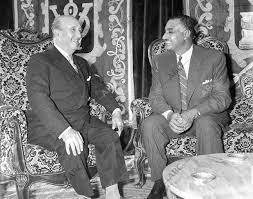
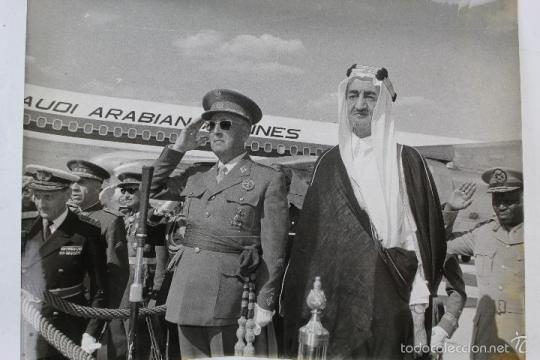

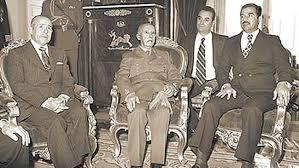
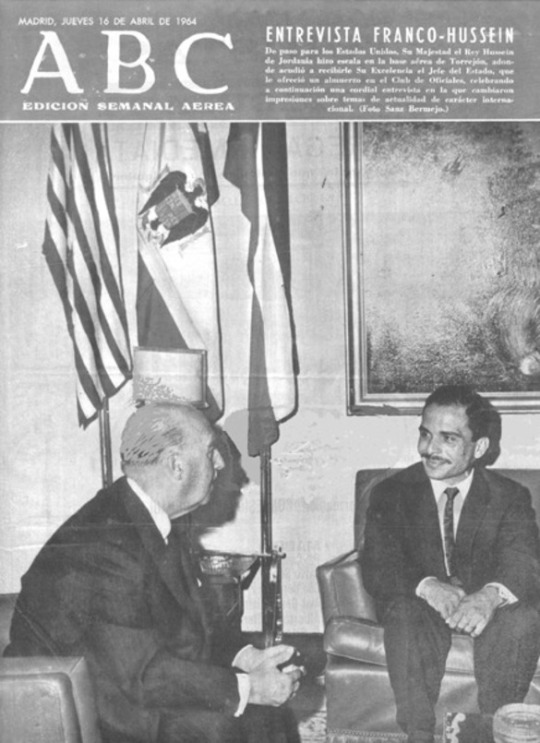
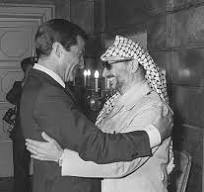
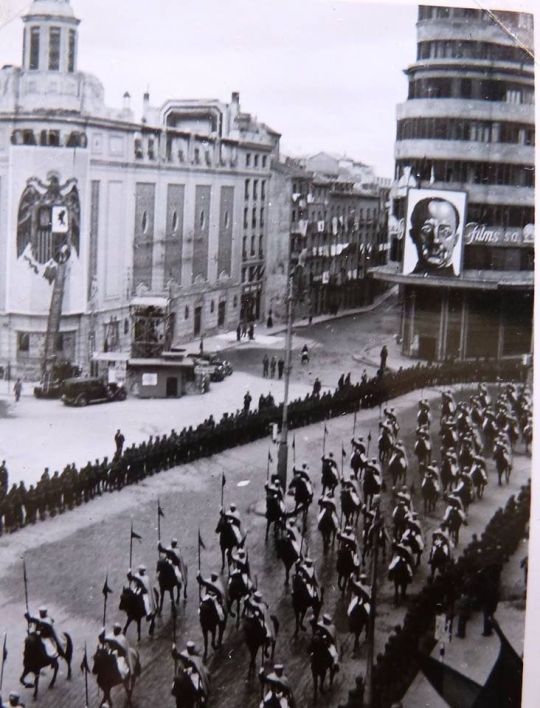
3 notes
·
View notes
Text
Whumptober 2022 - Day 6
Proof of life - Ransom video
“Are you sure?” Joe said, a brow raised. He looked at the men on his left and right. They all were dressed in black and wore masks over their faces.
“Shut up,” one of them said and backhanded Joe.
“No, that’s cool,” he said. “I just… I wanted to be sure you think it’s a good idea.”
“And I said shut up!” The man repeated and raised his hand again. Joe turned his head away.
“We will send a video to your father and he will pay lots of money to get you back unharmed,” the man snapped.
Joe raised a brow.
“My father died quite a while ago,” he said. “He won’t pay a single penny.”
Before the guy could answer two men came into the room. One of them had a camera, the other one a tripod and the two of them set up their equipment.
The one who had backhanded Joe just glared at him, stepped in front of the camera when it was set, waited for one of the guys to start the video and then straightened his back.
“Muhammand ibn Abdullah ibn Ahmad Al-Saud, we have your son, Majid,” he said and stepped aside. The guy behind the camera moved it slightly and trained it on Joe’s face. “If you want…” he continued but Joe couldn’t hold back the snort.
The man whirled around and backhanded him again.
“Sorry,” Joe grinned when he turned back. “I didn’t want to interrupt your speech. I just wanted to point out a triviality. I’m not Majid Al-Saud.”
All the men were quiet from one moment to the next and they glared at him.
“You have the wrong guy. I thought you should know that,” Joe said with some sort of a shrug. It wasn’t easy with his hands tied to the chair he sat on.
“You’re not Majid Al-Saud?” the man echoed and Joe shook his head.
“Nope,” he said and tried to shrug again.
“But you’ve been in his hotel room,” the man snapped.
“Yeah,” Joe admitted. “Because he was sure that someone would try to kidnap him. And me and my family said we would prevent it,” he added grinning.
“But now we have you,” the guy said. “Then we will demand ransom from your family!”
“Yeah,” Joe nodded and seemed to deliberate. “But… you should know that Nicky won’t let any harm come to me?”
“Nicky?” the man frowned. “Who’s Nicky and why should I be afraid of him?”
It was the last thing he said. The next moment he dropped dead, a hole in his forehead.
Joe looked up, looked at the other two men in the room.
“This is Nicky,” he said. “And if you don't want to be next…”
They turned around on their heels and ran to the door, trying to get away but the moment they tore it open one of them got hit by a fist in his face while the other one got a boot in his crown jewels. Andy and Nile stood in the doorway, smirking at him.
“You enjoy this too much,” Nile said when she came in to cut the ties that held his arms tied to the chair.
“How’s Majid doing?” Joe asked when he rose. He massaged his wrists and looked at the dead man on the ground.
“He’s in the hotel and very, very grateful,” Andy grinned.
“And it can’t hurt that an Al-Saud owes you,” Nile added.
“No, it definitely can’t hurt,” Joe said. “Let’s get out of here.”
“Yes,” Andy nodded. “Your husband is waiting and we have to talk to said grateful Al-Saud heir.”
#whumptober2022#no.6#ransom video#the old guard#fic#yusuf al-kaysani#nile freeman#andromache the scythian#nicolò di genova#kaysanova#immortal husbands
36 notes
·
View notes